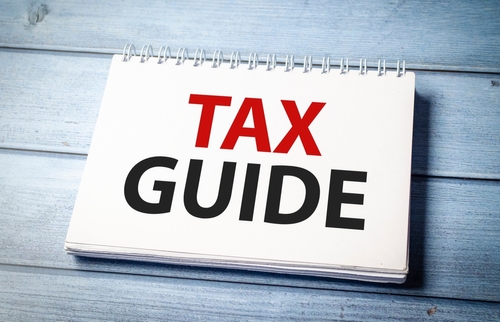
 You wake up in the middle of the night. Heart racing, drenched in sweat, and breathing heavily. Thankfully, it was just a nightmare when the IRS showed up at your doorstep unannounced. Recently, however, this was the reality for some taxpayers – and not just a bad dream. The IRS just publicized a significant shift in policy, effectively ending the vast majority of surprise taxpayer visits. The change comes in an effort to create safer conditions for IRS officers as well as ease public concerns.
You wake up in the middle of the night. Heart racing, drenched in sweat, and breathing heavily. Thankfully, it was just a nightmare when the IRS showed up at your doorstep unannounced. Recently, however, this was the reality for some taxpayers – and not just a bad dream. The IRS just publicized a significant shift in policy, effectively ending the vast majority of surprise taxpayer visits. The change comes in an effort to create safer conditions for IRS officers as well as ease public concerns.
Who’s Knocking at My Door?
In order to understand the change in policy, you’ll need to understand the three categories of IRS employees that typically interact with taxpayers: Revenue Officers, Revenue Agents, and Special Agents.
IRS Revenue Agents are tax return auditors. They don’t typically show up unannounced.
IRS Revenue Officers, of which there are approximately 2,300, have duties that include paying visits to taxpayers to collect back taxes and tax returns not filed. They are not auditors but instead focus on collection efforts, including issuing liens and levies. Revenue Officers are the main category of IRS employees impacted by the policy change.
Special Agents deal with criminal matters and are part of one of the largest law enforcement agencies in the United States. The change in policy does not impact Special Agents.
Safety
Why the shift to (mostly) eliminating surprise visits from IRS Revenue Officers? Safety is cited as the main concern. Unannounced visits to taxpayers, whether at home or their business, can be risky. Historically, IRS Revenue Officers faced contentious and sometimes dangerous conditions during their unannounced visits.
Taxpayer Confusion
There is also a growing number of scam artists pretending to be IRS agents or officers. As a result, taxpayers are increasingly wary of unannounced visits, and this causes confusion for both the taxpayer and law enforcement.
The difficulty in distinguishing between IRS representatives and fakes has caused concern for taxpayers already on guard for scam artists. The IRS believes that maintaining trust among the public will go a long way to maintaining the legitimacy of the organization.
Appointment Letters In Lieu of Visits
In place of these previously unannounced visits, the IRS will contact taxpayers through a 725-B letter, more colloquially known as an appointment letter.
An appointment letter will facilitate scheduling in-person meetings, with the opportunity for the taxpayer to prepare any information and documentation beforehand, allowing for quicker resolution of cases. These meetings occur at a pre-determined time, date, and place.
Limited Visits Will Still Occur
The policy change does not completely eliminate unannounced visits by the IRS. In “extremely limited situations,” such as serving summonses and subpoenas and the seizure of assets, unannounced visits will still occur. To give some perspective, these types of visits will account for only a few hundred per year compared to the tens of thousands of unannounced visits under the old policy.
Conclusion
Unannounced IRS visits are (almost) a thing of the past. They will be carried out only in rare, necessary cases, with most Revenue Officer visits being pre-scheduled. This should ease taxpayer anxiety and make case resolution more efficient.


 Now that we are heading into the backend of summer, it’s time for many states to host their annual sales tax holidays for returning to-school shopping. Numerous states with sales tax (remember, not all states have a sales tax) provide the reprieve to help families with the cost of annual school supplies and clothing.
Now that we are heading into the backend of summer, it’s time for many states to host their annual sales tax holidays for returning to-school shopping. Numerous states with sales tax (remember, not all states have a sales tax) provide the reprieve to help families with the cost of annual school supplies and clothing.
 Private companies both large and small are feeling the tax pinch due to changes in the law. With rampant inflation, labor shortages, lingering supply chain issues and increased borrowing costs due to rising interest rates, tax problems are the last thing struggling companies need to face.
Private companies both large and small are feeling the tax pinch due to changes in the law. With rampant inflation, labor shortages, lingering supply chain issues and increased borrowing costs due to rising interest rates, tax problems are the last thing struggling companies need to face.
 The end of the federal emergency declaration for Covid-19 came on May 11. As a result, there are various public health policy changes. For example, vaccines and treatments will remain available, but at-home tests may no longer be covered by insurance and national CDC data reporting is subject to change.
The end of the federal emergency declaration for Covid-19 came on May 11. As a result, there are various public health policy changes. For example, vaccines and treatments will remain available, but at-home tests may no longer be covered by insurance and national CDC data reporting is subject to change.
 So, you filed and paid all your taxes on the money you earned in 2021. Now, the company you work for finds itself in trouble, and you are forced to pay back part of your compensation. The big question is, will the IRS refund you for the taxes you already paid related to this compensation? While this seems like a bizarre scenario at first glance, it is more common than you might think.
So, you filed and paid all your taxes on the money you earned in 2021. Now, the company you work for finds itself in trouble, and you are forced to pay back part of your compensation. The big question is, will the IRS refund you for the taxes you already paid related to this compensation? While this seems like a bizarre scenario at first glance, it is more common than you might think.
 Most people volunteer out of a sense of altruism, duty or purpose – not to get a tax deduction from Uncle Sam. At the same time, if your good deeds could also result in lower taxes, why not? Theoretically, this would free up more time to volunteer or let you make a charitable donation, a win-win for you and the cause you care about.
Most people volunteer out of a sense of altruism, duty or purpose – not to get a tax deduction from Uncle Sam. At the same time, if your good deeds could also result in lower taxes, why not? Theoretically, this would free up more time to volunteer or let you make a charitable donation, a win-win for you and the cause you care about.
 The U.S. housing market has been extremely volatile over the past year. Year-over-year growth rates were at highs of 20.1 percent in April 2022, then declined to only 8.6 percent in November – the biggest drop in over 20 years. As a result, many homeowners who sold their homes in 2022 or plan to in 2023 may have either gains or losses depending on their location and timing. Below, we tackle the issues you need to know to properly account for the taxation of your home sale.
The U.S. housing market has been extremely volatile over the past year. Year-over-year growth rates were at highs of 20.1 percent in April 2022, then declined to only 8.6 percent in November – the biggest drop in over 20 years. As a result, many homeowners who sold their homes in 2022 or plan to in 2023 may have either gains or losses depending on their location and timing. Below, we tackle the issues you need to know to properly account for the taxation of your home sale.
 Every year, typically right after the new year starts, the IRS formally announces key dates and deadlines for the current tax season. Recently, the IRS made the announcements for the current 2023 tax season.
Every year, typically right after the new year starts, the IRS formally announces key dates and deadlines for the current tax season. Recently, the IRS made the announcements for the current 2023 tax season.
 According to the IRS, not only is your ignorance no excuse, but so is that of your tax preparer. In other words, the fact that your tax preparer made a mistake is no excuse and will not absolve you from compliance penalties.
According to the IRS, not only is your ignorance no excuse, but so is that of your tax preparer. In other words, the fact that your tax preparer made a mistake is no excuse and will not absolve you from compliance penalties.
 Now is the time of year to do everything you can to minimize taxes and maximize your financial health with proper year-end planning. In this article, we’ll look at several actions to consider taking before the end of 2022.
Now is the time of year to do everything you can to minimize taxes and maximize your financial health with proper year-end planning. In this article, we’ll look at several actions to consider taking before the end of 2022.